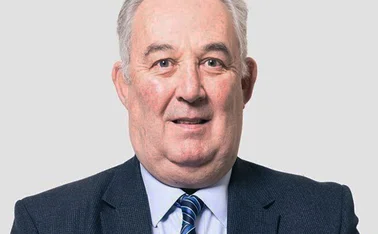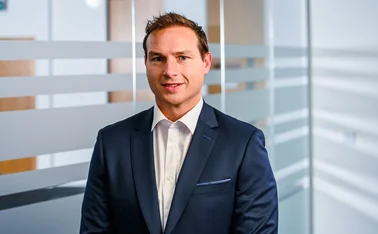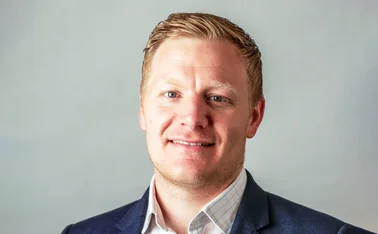
Abuse claims expected to surge

Need to know
- Insurance lawyers are expecting a spike in abuse claims
- Recent judgments indicate an expansion of the law of vicarious liability
- Some insurers have specialised teams to handle these complex, sensitive and long-tail liability claims; many are shying away from the risk
- Ecclesiastical has issued a statement of principles for handling PSA claims; Liberty has launched a safeguarding product
- Some insurers are working with clients to build in resilience
Physical and sexual abuse claims have made the headlines in recent times but what role does the insurance industry have in paying out over these?
Insurance lawyers are noticing a rise in physical and sexual abuse claims but understandably it is an area that some insurers are reluctant to touch.
The mainstream media have shone a light on horrific cases of historical sex abuse, exposing prolific offenders in the process. Following the Rotherham and Jimmy Savile scandals, more people are speaking out about their experiences. Physical and sexual abuse has taken place in children’s hospitals, care homes, churches and even football clubs.
The insurance industry is not exempt from the effects of these revelations and providing insurance to such institutions where PSA can occur has never been more of a risk.
Paula Jefferson, partner at BLM, has noticed a rise in abuse claims since the Savile and Rotherham cases.
"This is an area of the law that has developed significantly over the last 10 to 15 years and it's particularly topical at the moment due to the Independent Inquiry into Child Sex Abuse," she says. "Everyone will pretty much accept that certainly there has been a rise in claims post-Jimmy Savile."
Launched in March 2015, the IICSA led by Dame Lowell Goddard will investigate a wide range of institutions, public and private.
Jefferson says claims are targeting “all the organisations which have children at the centre” of their work, including schools, charities and religious organisations “right across the board”.
Andrea Ward, a partner at DAC Beachcroft, believes insurers can expect a rise in claims of this nature.
“The Inquiry into Child Sexual Abuse is expected to lead to a spike in claims. There have been several spikes in the past. In the early 1990s, the Pindown inquiry [into solitary confinement in Staffordshire children’s homes] led to claims. Then in 2000, the various police investigations, such as Operation Rose [into PSA at children’s homes] in the North East, led to claims,” says Ward.
talking point
In 2015, PSA claims represented
0.4% of all claims and
5.5% of all public liability claims
Often, abuse claims involve survivors who have taken years to realise what has happened to them. Due to the timeframe, proving the abuse occurred can be problematic. The alleged abuser may be deceased, there may be no witnesses and memory can be hazy.
Andrew Ellis, member of the public sector focus team at the Forum of Insurance Lawyers, emphasises historical abuse claims can be extremely complex. “These are often not one-off incidents, they are a course of conduct with significant relevant background to consider before the abusive events even occur. Evidentially, the passage of time does not assist in the investigation of claims, memories fade, staff move on,” he says.
“Document management and retention will have been treated differently over the years, and locating and obtaining these can be an extensive process.”
Historical claims can arise under policies that were never designed for claims of such nature. Alastair Gillespie, partner at Hill Dickinson, suggests some organisations will have limited cover and could, therefore, be caught off guard when faced with a claim.
“Some of these cases go as far back as the 1950s and in some cases organisations can find their insurance but their insurance may be seriously limited in terms of the cover that it offers. Equally, an insurer would have taken very low premiums for those risks at that time, never envisioning that a claim of that nature would ever be made,” says Gillespie.
“Often organisations can’t find insurance and they’re, therefore, having to find defences themselves. And that’s another limitation argument, if an organisation is saying that the delay is so great that we can no longer find our insurance, then that in itself is a ground of prejudice that the defendant can rely upon. It’s financial prejudice if the claimant didn’t come forward in time and it may then be impossible to claim insurance.”
Similarly, the judicial landscape around PSA can make it a very tumultuous field to navigate. Ellis points out: “The law in this area is in flux and recent judgments clearly indicate an expansion of the law of vicarious liability which shows no signs of abating without executive intervention.” Vicarious liability means an employer may be held responsible for the acts of an employee, provided they took place in the course of their employment.
Unfortunately claims of this nature do occur and when they do, some insurers offer specialised teams that play a crucial role in managing them effectively.
Complex claims
Lee Watts, head of casualty claims at Allianz Insurance, points out: “Claims for historical abuse are complex both from the varied nature of the allegations and the challenges surrounding investigation and evidence gathering. Fortunately we have a skilled and designated internal claims team that are experienced in handling sensitive and long-tail liability claims,” he says.
“Where our insured is liable, then we will look to compensate the victim as soon as possible. But the liability and quantum situations are often far from clear-cut.”
And some insurers are setting out their stall in this market. Ecclesiastical, which insures organisations in the faith, school and charity sectors, says abuse claims made up 5.5% of the public liability claims it handled last year. In June, it published a Statement of Principles explaining its approach to handling PSA claims.
- Policyholders should respond constructively from the outset (including before a civil claim is made)
- Policyholders should acknowledge how difficult it must have been for the claimant to come forward and explain what will happen next
- Policyholders should consider the appropriateness of an apology
- Policyholders should consider offering support or counselling
- Ecclesiastical commits to approaching any claim investigation with sensitivity, empathy and integrity
- Ecclesiastical commits to appointing joint medical experts where appropriate
- Ecclesiastical acknowledges that limitation should be pleaded as a defence to a claim very sparingly in relation to sexual abuse claims
- Ecclesiastical commits to not raising consent as a possible defence where the claimant was under 16 when the abuse took place
- Ecclesiastical commits to acting fairly towards all parties affected by the claim
- Ecclesiastical promises it will not insist on a confidentiality agreement in settlements
Among other things, it states that policyholders receiving a letter of claim must pass it to Ecclesiastical “immediately because it is a policy condition of liability insurance cover that [...] the insurer has the right to take over the conduct of any claim in the insured’s name and generally does so. This includes full discretion for the insurer to negotiate, agree or defend the settlement of claims.”
Ecclesiastical adds where the liability of the policyholder is clear, it is “in everyone’s interest” to admit it early – and keep legal costs to a minimum. It explains that, based on available medical evidence, it can then assess the financial value of a claim and try to settle it before formal legal action is launched.
The insurer acknowledges that limitation should be pleaded “very sparingly” in sexual abuse claims and it pledges not to plead consent where claimants were aged under 16 when the abuse took place.
Changing policy wording
Not all insurers are keen to cover this area. According to Keri Egan, branch manager at Circle Insurance Services, insurers that provide cover to institutions where PSA may occur are changing their policy wording so as to make sure they aren’t paying above the odds for a claim. “Insurers are going onto a claims made wording, which means that the policy will only operate if the policy is enforced. And this tends to be the way in which abuse is written now.”
talking point
Statistics for 2014 show that the police in England and Wales recorded more than
28,000
sexual offences in which the victim was under the age of 16
Further to that, some well-known insurers are showing little interest for this risk. “It’s not appealing for big-name insurers to offer cover,” says Egan. “They’ve seen an increase and that’s why they’ve restricted the wording to make their liability more definite rather than an unknown quantity for the future.”
Despite insurers shying away from this area, a new insurance product was launched in June taking a preventive approach to PSA instead of a reactive one.
Liberty Mutual Insurance, the commercial division of Liberty Specialty Markets, partnered with children’s charity NSPCC to offer Liberty Safeguarding, which combines traditional insurance cover with a range of risk management tools.
Designed for schools, foster homes, sports and youth clubs, the product aims to ensure organisations have robust safeguarding standards to prevent abuse.
“However much is done to stop these things from happening, you really can’t rule it out,” notes Egan. “There are people who will get a job, who will work with vulnerable people. That’s key: it’s about how these charities and businesses are really safeguarding their clients or businesses from these risks.”
Gillespie says to tackle these issues, insurers and their lawyers need to choose correctly the claims they’ll contest. “We do try to pick the right claims to fight,” he says. “Those are the sorts of cases that you need to invest time in and win them and in that way you’ll reduce your exposure significantly.”
He says insurers should stand their ground when dealing with PSA claims. “An insurer certainly shouldn’t always pay out – far from it, in fact. According to our statistics, the number of claims that we have made go away as compared to those we’ve settled is one-third higher.” He says for 100 settled claims, 133 are defeated through discontinuance, dismissal at trial or redirection.
IICSA
The Independent Inquiry into Child Sexual Abuse will investigate whether public bodies and other non-state institutions have taken seriously their duty of care to protect children from sexual abuse in England and Wales. The institutions the IICSA will look at include: local authorities; the police; the Crown Prosecution Service; the Immigration Service; the BBC; the armed forces; schools; hospitals; children’s homes; churches, mosques and other religious organisations; charities and voluntary organisations; regulators; and other public and private institutions
Gillespie believes there are bandwagon claims. “We’ve defended claims where we’ve proved that claimants have been lying and those claims have gone away. I’m afraid that there are a significant proportion of claims of that nature where people are simply not telling the truth. Those people do a genuine disservice to genuine claims.”
Jefferson notes insurers that are newer to the market have written a lot of business in the care sector and are likely to come across a lot more abuse claims. “There is the potential for a lot more claims to come out of that sector than we’ve seen before,” she says.
And the level of preparation varies from insurer to insurer.
“A lot of insurers are a lot more prepared, they have more experience in that sort of area and have dedicated teams who deal with those claims. And there are those who are taking a different approach and are less prepared,” says Jefferson.
“It’s about knowing your insured business and knowing whether or not you’re at risk and having your own internal protocol, which assists in how you are going to deal with these claims and assist in how you support existing and prior insurance and considering whether or not there is potential for involvement in the inquiry and seeing what that potential may be.”
Legal changes and the delicate, personal nature of PSA claims mean that insurers are having to tread carefully. They are finding themselves having to establish a balance of sensitivity and diligence.
A Zurich spokesman underlines: “Cases of abuse are obviously very distressing for victims and survivors, as well as their families, and we have great sympathy with anyone whose life has been affected. Zurich is very sensitive to these issues and takes abuse claims very seriously.”
“The law in relation to most types of claim, including abuse, has changed significantly over the last 20 years and we have adapted our approach to handling abuse claims in accordance with legal developments,” he adds.
“While the nature of abuse cases requires a sensitive approach in the handling of claims, the process for doing so is common to that adopted for any liability claim. The evaluation of the evidence and assessment of the value of an abuse claim follows the way that liability claims are generally assessed by reference to the law and court awards made in similar cases.”
Building resilience
Considering the difficulties, Ellis believes building resilience is key to how insurers can prepare for a possible rise in claims.
“Insurance companies are working now with insured clients to build in resilience
for the future and to help insured clients prepare for and then manage claims in a
cost-effective way,” he says.
“However, no one can change the past or avoid the interest in these types of claims created by publicly available reports, the media. In addition, the reduction in recoverable costs in lower value personal injury makes this area attractive to claimant firms.”
However, Egan says cover for PSA claims will become harder to come by as insurers find it harder to make a profit in this sector. “There still seems to be the same names that will provide restricted cover, full cover seems to be available on really well-presented risks,” says Egan. “I haven’t seen a lot of changes but it isn’t easy as it was five years ago to get cover.”
“We thought that the profession should look at this as an issue before it became a big issue. At the moment, it hasn’t happened but in theory, if insurers keep restricting cover then there will be little cover or no cover for people within these sorts of organisations and then it just becomes their own risk.”
 The new Claims Club Summit comes to the Crystal, London on Wednesday 12 October, bringing you innovation, interaction and fresh thinking. Don’t miss:
The new Claims Club Summit comes to the Crystal, London on Wednesday 12 October, bringing you innovation, interaction and fresh thinking. Don’t miss:
- Innovation showcases: drones, robotics, automation, 3D printing
- Cyber TED talks
- Oxford-style whiplash debate with key insurers, regulators and lawyers
- Regulation quick-fire updates: small claims limit, Briggs, CMCs, Insurance Act
- Confirmed FCA speaker: what’s new with the thematic reviews?
- Fishbowl debates: automation, risk prevention, liability, claims efficiency
Booking is open. Insurer, broker and service provider rates can be found at: www.postevents.co.uk/theclaimsevent
Only users who have a paid subscription or are part of a corporate subscription are able to print or copy content.
To access these options, along with all other subscription benefits, please contact info@postonline.co.uk or view our subscription options here: https://subscriptions.postonline.co.uk/subscribe
You are currently unable to print this content. Please contact info@postonline.co.uk to find out more.
You are currently unable to copy this content. Please contact info@postonline.co.uk to find out more.
Copyright Infopro Digital Limited. All rights reserved.
As outlined in our terms and conditions, https://www.infopro-digital.com/terms-and-conditions/subscriptions/ (point 2.4), printing is limited to a single copy.
If you would like to purchase additional rights please email info@postonline.co.uk
Copyright Infopro Digital Limited. All rights reserved.
You may share this content using our article tools. As outlined in our terms and conditions, https://www.infopro-digital.com/terms-and-conditions/subscriptions/ (clause 2.4), an Authorised User may only make one copy of the materials for their own personal use. You must also comply with the restrictions in clause 2.5.
If you would like to purchase additional rights please email info@postonline.co.uk








